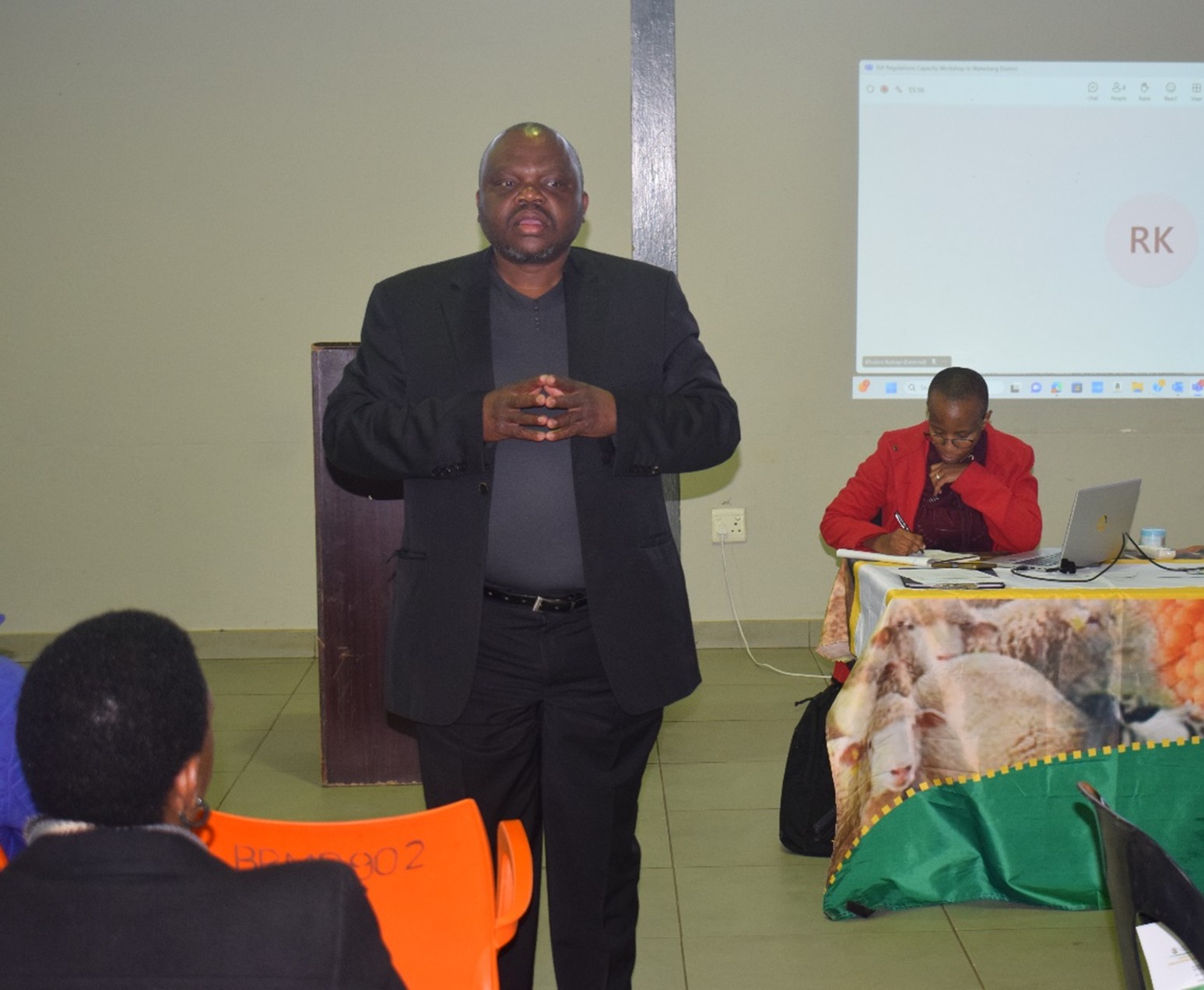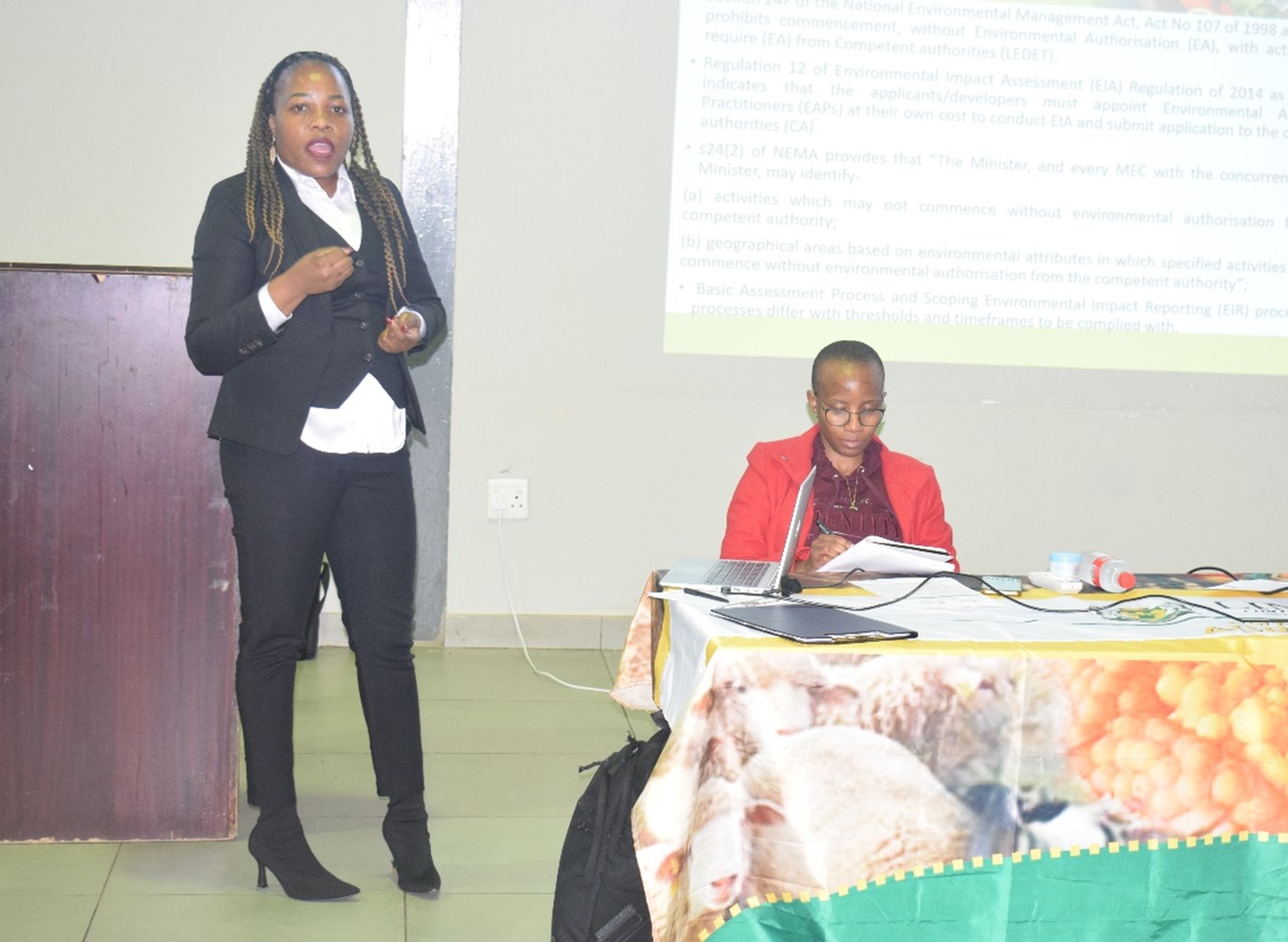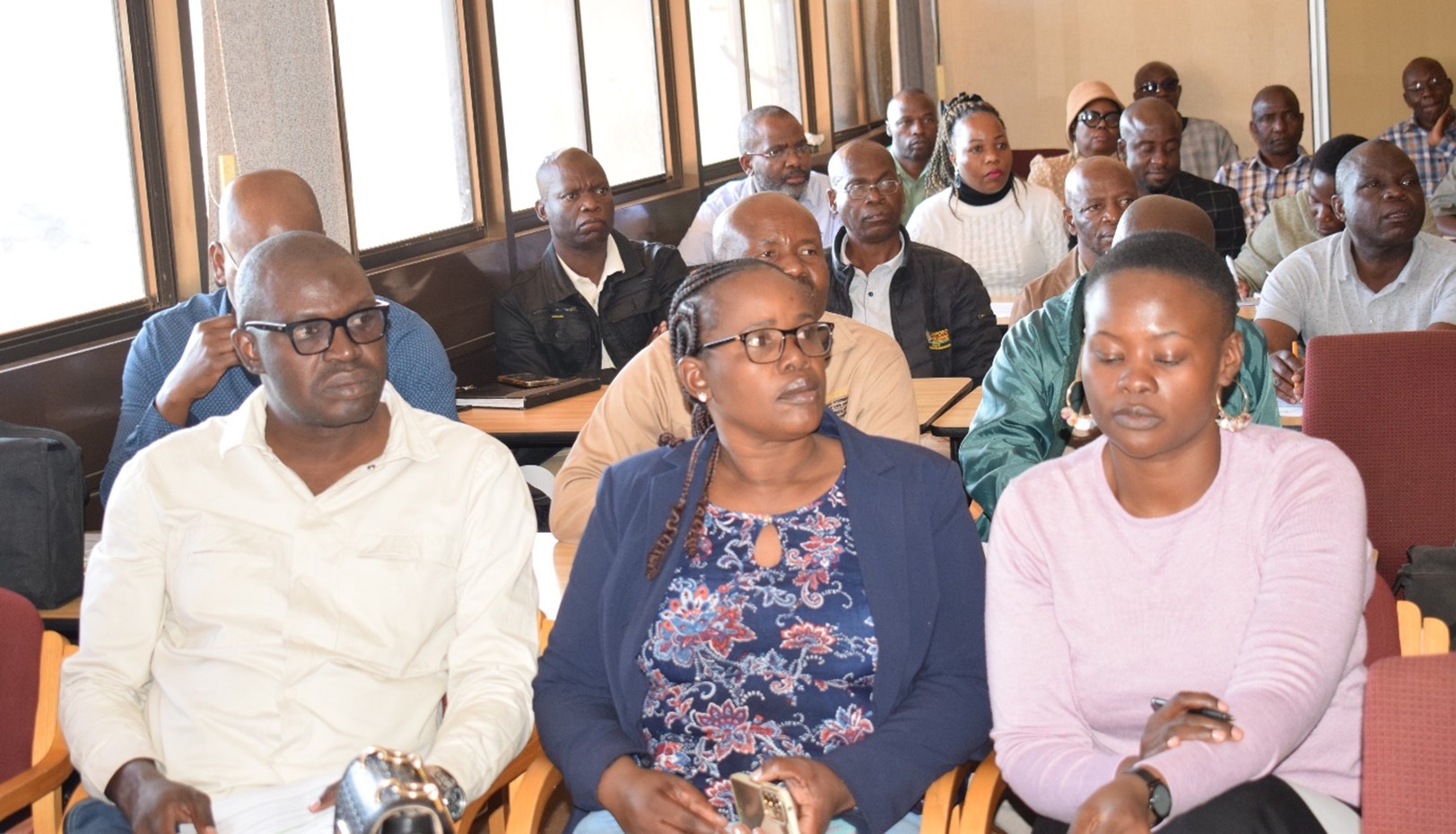By Matsobane Manaka

Matsobane Selemela, Director for Landcare and Land Use Management, says EIA is used as an instrument to evaluate the potential damage of the environment due to the proposed development of a project.
An environmental compliance is a legislative issue for any agricultural development. This came out of the workshops conducted by the Limpopo Economic Development, Environment and Tourism (LEDET) targeting officials from Limpopo Department of Agriculture and Rural Development (LDARD) in all districts on Environmental Impact Assessment (EIA).
The consultation process is aimed at capacitating officials on EIA from various specialised skills in LDARD, who are involved in agricultural activities, and further solicit their inputs. National Department of Agriculture had considered the new EIA for Landcare activities in those workshops for concurrence.
The move was in response to the amendment of the Environmental Impact Assessment (EIA) Regulations as listed in the Natural Environmental Act (NEMA) Regulations that affect the entire agricultural sector / project.

LEDET’s Rosemary Mashele and Ditebogo Mosotho facilitate the session.
According to Matsobane Selemela, Director for Landcare and Land Use Management, EIA is used as an instrument to evaluate the potential damage of the environment due to the proposed development of a project. He indicated that this will not only help to identify potential environmental threats, evaluate its importance, and come up with intervention process that will promote sustainable development, but also to reverse the environmental degradation of agricultural land.
Section 24 F of the NEMA, Act no. 107 of 1998 as amended prohibits commencement, without Environmental Authorisation (EA) with activities that require Environmental Assessment (EA) from Competent Authorities (LEDET).
Under the EIA Regulations amendment, there are number of agricultural activities that should not exceed the specified threshold, which might be triggered in line with listing notices.
However, there are specific Landcare areas of exclusion that need certain requirements such as declaration of compliance based on environmental management instrument. Examples of activities for exclusion are categorised into: soilcare, veldcare and watercare. Various pieces of legislation will also be considered, including NWA, NFA, NVFFA, OHS etc.
The participation ensured that critical sector-specific concerns are well integrated into environmental planning and decision-making frameworks.

The consultation processes in session aiming at capacitating officials on EIA from various specialised skills.


